The hard or Soft water preference of a plant mainly depends on the plant species you wish to plant in the tank. Therefore, you should be highly aware of the particular species requirement before you select. Generally, aquatic plants like to live in moderately soft water conditions. But most of the live plants can tolerate the hard water conditions (general hardness) too.
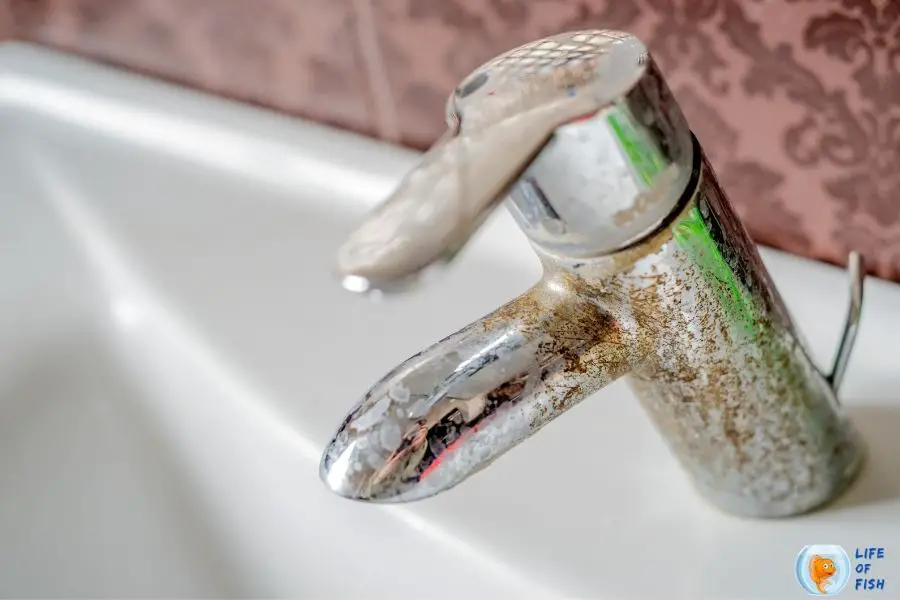
What is Hard or soft water?
Jump To
- 1 What is Hard or soft water?
- 2 Is Hard Water Bad for aquarium plants?
- 3 What are the best plants for a hard water aquarium?
- 4 Which water is best for a planted aquarium?
- 5 Is it okay to use softened water in an aquarium?
- 6 Can I use tap water for aquarium plants?
- 7 How do I get rid of hard water in my aquarium?
- 8 Planted Tank Water Parameters
- 9 Soft water aquarium plants
- 10 Will Hard Water Kill My Fish?
- 11 Conclusion
Simply water hardness can be defined as the amount of dissolved magnesium and calcium in the water. If you have hard water, it means water has high dissolved minerals, including a large amount of calcium and magnesium. Hence, if you require a planted aquarium, you should consider total and carbonate hardness. Also, you should maintain a carbonate hardness between 3 to 10 dCH in planted aquariums.
Is Hard Water Bad for aquarium plants?
The impact depends on your selection. It means some aquarium plants can survive in hard waters. So, if you choose that kind of live plant, there is no bad impact. But if you decide to grow an aquatic plant that prefers soft water, hard water will badly impact this plant. However, hard water does not tend to kill aquarium plants. Further, hard water provides essential nutrients. Instance, magnesium, calcium, and potassium are some of them. These nutrients help the growth of aquarium plants.
What are the best plants for a hard water aquarium?
Some species can tolerate and live in hard water. Thus, here I mention the best aquarium plants for hard water aquariums.
Bacopa
This plant is scientifically known as Bacopa caroliniana. Bacopa can survive in the water hardness range of between 71.43 to 142.86 ppm. Usually, they can tolerate a wide range of water parameters.
Giant Hygro
Giant hygro is one of the best selections for beginners. Thus, it can thrive between 71.43 to 321.43 ppm of hardness. Further, Giant hygro is scientifically known as Hygrophila corymbose.
Marsilea Hirsuta
This aquarium plant is also suitable for hard water planted aquariums. Because they can tolerate water hardness of 17.9 ppm to 400 ppm.
Amazon Frogbit
Scientifically, this plant is known as Limnobium laevigatum. Amazon Frogbit can live in 200 ppm to 240 ppm water hardness. So, you can keep them in hard water without confusion.
Java fern
Microsorum pteropus is the scientific name of the java fern. Also, they can live in hard water between 60-160 ppm.
Java Moss
This plant’s scientific name is Vesicularia dubyana. Its water hardness tolerance range is between 60 to 240 ppm. Thus, you can choose this popular aquarium plant for hard to very hard waters.
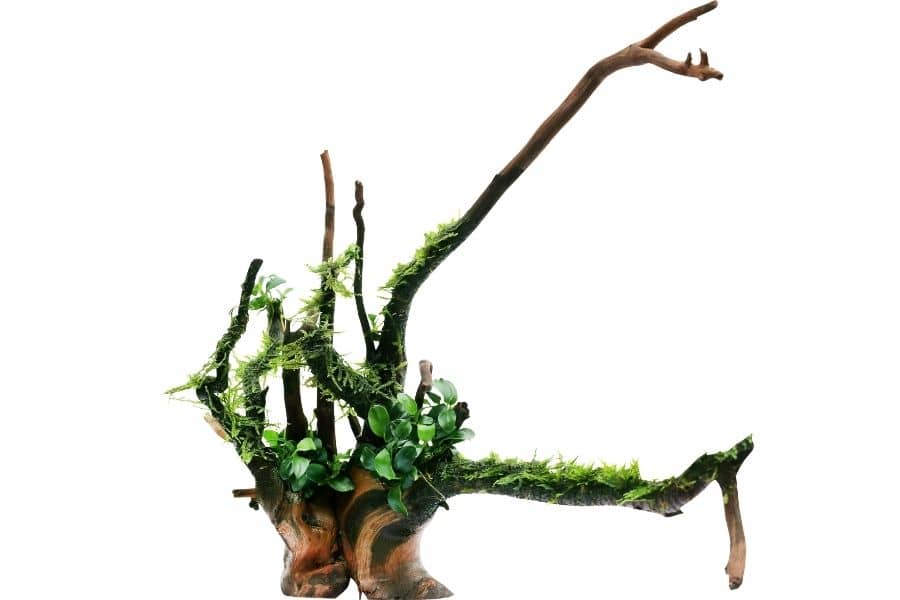
Which water is best for a planted aquarium?
According to the general view, the live plant performs best in moderately soft water. Also, most aquatic plants prefer to live in general hardness of 50 ppm to 100 ppm. But the hardness of the water in your planted aquarium depends on the live plant species you wish to plant. Usually, you should keep the water’s alkalinity level in a planted aquarium between 3-8 dKH or 54-100 ppm.
Moreover, you should maintain a 6.5-7.8 pH level in your planted aquarium. However, before you grow an aquatic plant, you should know about the requirements of the particular plant species. Further, the water hardness requirements of the same aquatic plant family are fairly similar. But it differs when you select plants from different families. On the other hand, sometimes, tap water is exceptionally hard. Also, this tap water has a high pH level. In these cases, you can convert hard water into soft by using reverse osmosis or ion exchange.
Is it okay to use softened water in an aquarium?
It is okay if your fish and aquarium plants can thrive in soft water. Therefore, when you choose fish, aquarium plants, and other live creatures for your aquarium, you should be aware of your aquarium’s water hardness. If not, you have to face many troubles regarding the survival rate of fish and plants in your tank.
Can I use tap water for aquarium plants?
Yes. You can use tap water for aquatic plants. But before adding tap water, you should treat them by using de-chlorinators. Hence, de-chlorinator helps to remove the chlorine from tap water. This chlorine can affect aquatic plants, fish, shrimps, snails, and other animals in your planted tanks. Therefore, It is better to treat the tap water before adding fish to your aquarium. In addition to that, you can hold the tap water for 24 hours in a separate tank. Then chlorine will evaporate. Then you can add this water to the planted aquarium.
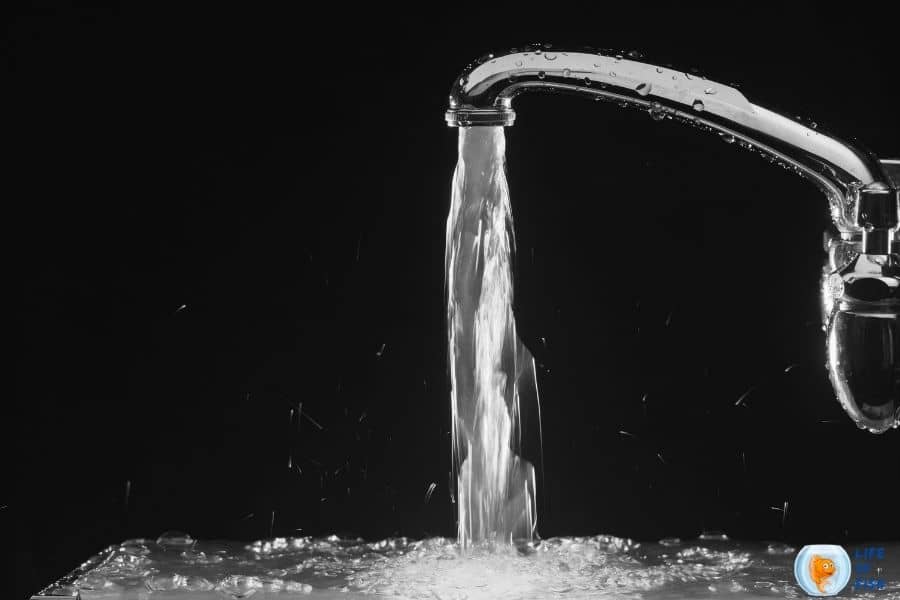
How do I get rid of hard water in my aquarium?
There are a few methods to convert hard water into soft water in your aquarium.
Reverse Osmosis (RO)
Reverse osmosis is the most effective way to reduce the hardness level of your aquarium water. Also, you can do this without using any chemicals or harmful products. Further, RO can remove about 95-99% of minerals, chemicals, and other dissolved particles from your tank water. Here RO converts hard water into soft water by pushing the hard water through a slightly permeable material under high pressure.
Water softening pillows
This method decreases the general hardness level of your aquarium water by chemical filtration media, commonly an ionized resin. Normally, you can add water softening pillows to your existing water filter. Also, this method gives the best results to smaller aquariums under 25 gallons. But you can use it for large aquariums too.
Peat
Peat moss is also a better way to soften your aquarium water. It tends to bind calcium and magnesium ions while releasing gallic and tannic acids into the water. Then these two acids attack and degrade the bicarbonates in the aquarium. Also, they tend to reduce the pH and carbonate levels of the tank water.
Driftwood
Driftwood also works like peat. Because driftwood also decreases the GH and PH levels. However, you should clean the driftwood before adding the tank.
Rainwater
This method is better for persons who search for inexpensive ways to soften the aquarium water. But here you should ensure several things to get better output.
- Firstly, you should ensure the area where you live has decent air quality
- Also, you should have a system to clean, sterile, and store water capture
- Another one is being a food grade to prevent the chemical from leaching into the water
However, if your rainwater is very soft, you can increase the KH and GH levels of the water up to the desired level by adding tap water or aquarium salt.
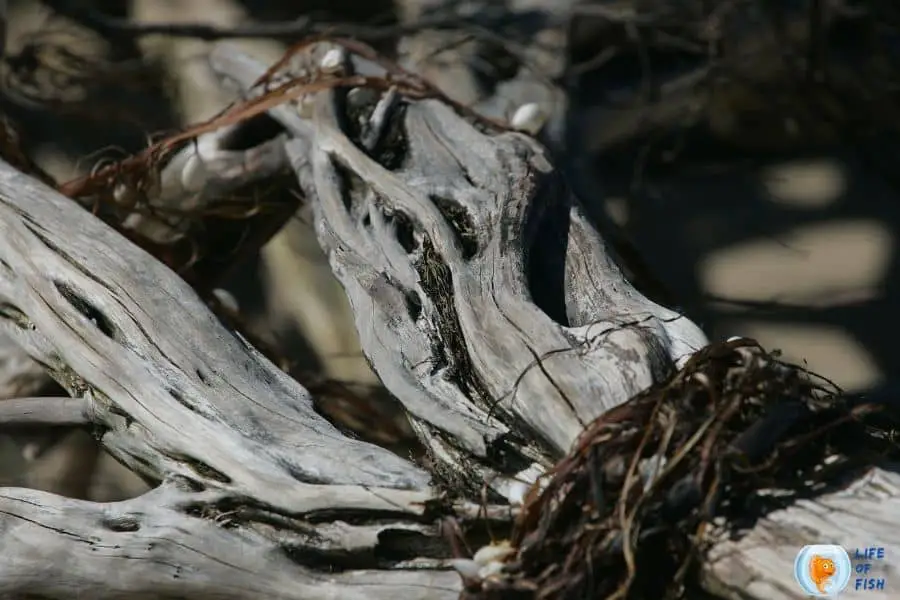
Planted Tank Water Parameters
Aquarium plants are also living creatures. So, if you wish to buy them, you should care for them properly. Further, they also have their own requirements to live happily and healthily. Water parameters are an important factor when you keep aquarium plants in your tank. Here we consider the pH level, temperature, alkalinity, and other important parameters.
pH level
It is better to maintain the pH level between 6.5-7.8 in the planted tank.
Water hardness
Generally, you should maintain the general hardness of 50 ppm to 100 ppm. Also, you have to keep the alkalinity level in between 3-8 dKH. But these levels can be varied with aquatic plant species.
Nitrate
If you have a planted aquarium, you should control the nitrate level below 5 ppm. Because nitrate can harm both your aquarium plants and fish.
Phosphate
The phosphate level also should be below 5 ppm.
Temperature
Temperature is an important factor for aquatic plants. It is better to keep the water temperature between 74 to 80 Fahrenheit. Additionally, you can use a heater to maintain a stable water temperature in your planted aquarium. Further, water quality is a golden secret of a healthy aquarium. Thus, to optimize it, you should perform 10% water changes weekly or 25% water changes bi-weekly. Also, you should use a better filter system to remove organic pollutants. Further plants need proper circulation. Proper water circulation helps to steady the supply of nutrients for plants and prevent algae growth. Also, it avoids the accumulation of organic debris on the leaves of aquatic plants.
Soft water aquarium plants
You can identify aquarium plants that can thrive in three stages. These stages are soft, moderately soft, and slightly soft. The below chart helps you to clarify these stages clearly.
| Description of water hardness | Degree of hardness (dH) |
| 3 | Soft |
| 3-6 | Moderately soft |
| 6-12 | Slightly soft |
So, let’s identify the best aquatic plants for soft-water aquariums.
Chain swords
The chain sword is also known as the Pygmy chain sword. This green aquarium plant is a small species and has narrow leaves. Further, this nice-looking aquatic plant can thrive at 3-8 KH. Also, it p a 6.2-7.5 pH level and 68-84 Fahrenheits live happily.
Cryptocoryne
This live plant is also known as Wendt’s cryptocoryne. However, you can buy this plant in various colors such as green, olive green, and reddish-brown green. Further, they can thrive in water with KH 3-8, pH 6-8, and 72-82 Fahrenheit.
Dwarf sagittaria
This plant is also named Hudson sagittaria, and Ribbon wapato. This fast-growing aquatic plant can rear in your aquarium. Similarly, this plant can survive in 3-8 KH, pH 6.5-7.5, and 72-82 Fahrenheit.
Anubias barteri
If you are a beginner, you can rear anubias species because it is easy to rear. Also, this beautiful green color live plant needs 3-7 KH, pH 6.5-7.5. Also, they need 72-82 Fahrenheits.
Cabomba
Carolina fanwort or cabombo has a vibrant green color. Similarly, this live plant can survive in tank water with 3-8 KH, pH 6.5 to 7.5, and 72-82 Fahrenheits. Further, you can gain more benefits from this plant. Because it can enhance water quality. Carolina fanwort MAY oxygenate the pond and absorb nitrogenous waste materials from water. In addition to these plants, you can plant Micro sword, Java fern, and Ludwigia in your soft water aquarium.
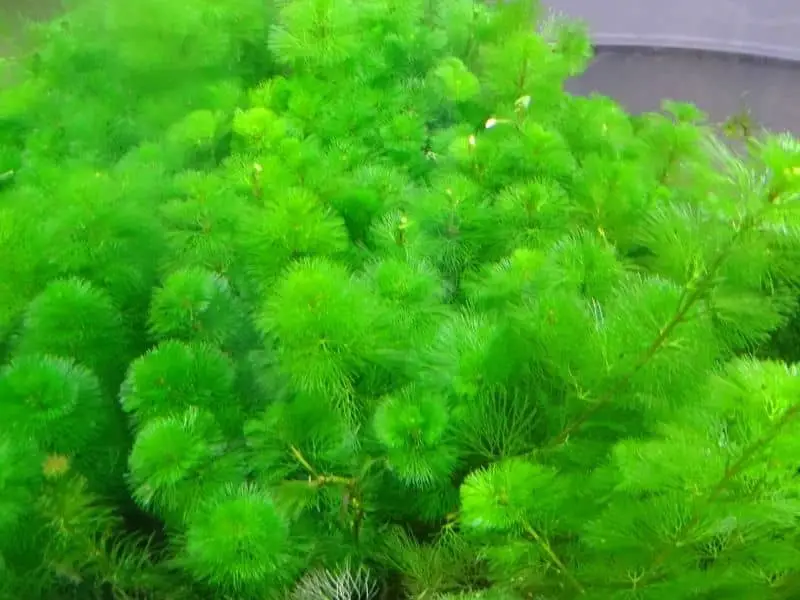
Will Hard Water Kill My Fish?
The answer of yes or no is based on the fish species in your aquarium. Because certain fish species can tolerate certain degrees of general water hardness. However, like other parameters, if the water hardness level is not ideal, it can affect your fish badly. For instance, some fish species like congo tetras, African cichlids, flagfish, and some rainbowfish species can thrive in hard water.
Conclusion
The planted aquarium is a challenging mission. Under this topic, water hardness is the main factor that you should highly consider. But it is not a very difficult task. First, before selecting the live aquatic plant, you should check the hardness level of your aquarium. Then you can choose the plants that can thrive in your tank. Further, You can create an excellent live aquatic plant collection in your aquarium with my guidelines.
Read Next: Can I Use Tap Water For A Planted Tank? 9 Valuable Facts

